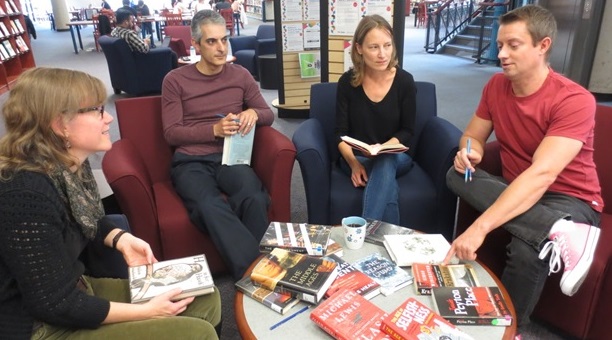According to the judgment of history, Reynald De Chatillon was a “Bad Guy” of the highest caliber. All opinions in, allies and foes; they all agree. Stories abound of his cruelties. He’s so bad, he could have been buddies with Prince Vlad the Impaler, if only he’d lived three hundred years later.
God’s Wolf, a biography of the Crusader Reynald de Chatillon, is out to prove this abiding opinion wrong.
Author Jeffrey Lee, a journalist with a background in Arabic and Islamic history, takes the 843-year bad reputation of Reynald de Chatillon, knight of the Second Crusade, and turns it on its head.
Granted, Reynald was an upstart. The younger son of a lesser lord in France, he came on crusade to make his career, like many others of his class. And that he did. He married well, and very likely for love. He became the highly effective Prince of the great city of Antioch and the stepfather of the Empress of Byzantium--a marriage alliance that he orchestrated. Then mid-career, mid-aggression, he was captured and incarcerated as a POW in Aleppo. Nur al-Din held him for fifteen years; one of the longest POW imprisonments of the era.
Upon being released, Reynald learned he had lost everything. His family, possessions, and princely holdings were all gone. Reynald had to rebuild his reputation as a loyal king’s man, unbowed by years of torture and confinement, and to convince the influential men in Jerusalem that he was still a chivalrous preudhomme. That he did, for the second time in his life.
Reynald did gain something in the fifteen years he spent jailed in his enemy’s dungeon. He developed a deep knowledge of Muslim habits and horrors. He also gained a capacity for revenge.
Other influential men who had been jailed with him (but not for nearly so long), specifically Raymond, Count of Tripoli, became sympathetic to the Muslim leaders. Raymond of Tripoli became a traitor to the Crusader cause, sowing doubt and dissension as well as deceptively leading hundreds of men in war, only to turn tail and leave them to their deaths. Raymond was one of the men who was left to tell the enduring stories that colour Reynald in evil shades.
Now, don’t get me wrong. The Crusades were a very dark time in world history, an example of the ills of colonialism at its very worst. And yes, Reynald was cold-blooded and cruel, and his audacious gouges at the heart of Islam still show the scars to this day. However, the Western view of Reynald’s contributions in this seminal time in world history is strangely negative. This is despite the fact he was not alone in perpetrating these kinds of offenses, and that he was always a king’s man, and that he was true to all the attributes of chivalry, as identified at the time.
Lee writes so engagingly that this book almost reads like a novel. It’s a fascinating polemic that re-examines the primary sources and the biases they reveal. Lee looks at all the facts; from Frankish, Byzantine and Arabic sources; to forge a new opinion on this much-maligned figure from history. And he does it in highly-readable style, incorporating fun references to the films The Manchurian Candidate and Ridley Scott’s historically inaccurate Kingdom Of Heaven. This is a fast-paced read that will provoke and challenge--a great book club choice!




